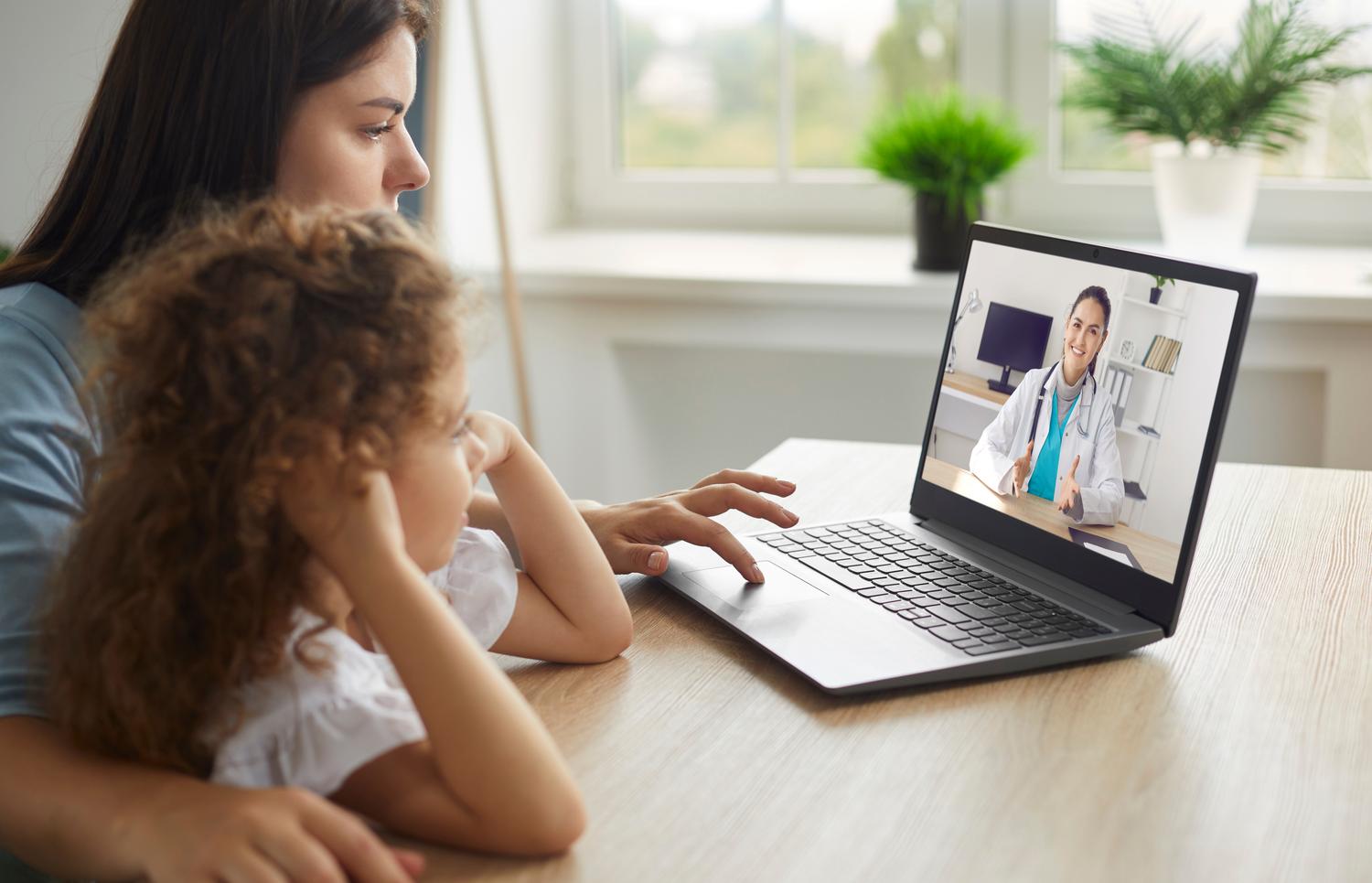The Impact of Pandemic Screen Time On Children
How increased screen time during the pandemic affects children
It’s no secret that time spent on screens (phones, laptops, tablets, etc…) increased dramatically during the COVID-19 pandemic. A recent study by the National Institute of Health found that people of every age (from young children to adults) increased their time spent in front of a screen by nearly an hour. There are several reasons for this – Zoom meetings, online classrooms, and remote work being the most prevalent causes. While many of these adjustments were necessities (like online learning), the time spent in front of screens can impact a child’s development. In fact, in the NIH study referenced above, children between the ages of 6 and 10 experienced the most dramatic uptick in screen use – an increase of 1.4 hours per day. Dr. Vanessa Neal – a Board Certified Pediatrician with over 15 years of clinical experience – offered some thoughts about the impact of screen time on children, and some tips on how to decrease time spent in front of screens.
- What’s the impact of increased screen time on children?
The impact of so much screen time on children creates ripple effects that span both physical and emotional domains. Physically, the strain of watching a screen for many hours can tire a child's eyes. Parents may notice their child rubbing their eyes more often, complaining of eye discomfort, or even headaches. Being in front of a screen longer also tends to increase snacking frequency. Eating a higher volume of snacks, especially in the setting of a sedentary lifestyle, can lead to weight gain and its associated health problems.
The emotional impact of increased screen time can be more subtle but just as problematic. The high intensity and animation in many children's shows and video games can rewire a child's expectations of the outside world. Not able to keep up with the stimulation of a television show or video game, a child's everyday reality can become more boring. Parents may have a difficult time holding their child's interest with non-screen activities and after a prolonged time in front of a screen, parents may notice that their child is more restless, distractible, and irritable.
- Have we already seen the impact of more screen time on children?
Unfortunately, we are already seeing the impact of pandemic screen time. I see more patients coming in with some of the physical symptoms mentioned above as well as behavioral concerns. Many children, especially younger children, are having a harder time processing their emotions due to less interaction with other kids and limited time with even their own family members. I see more teenagers disengaged due to developing relationships with screens rather than their peers. I am also seeing more incidences of depression and anxiety in kids and teens.
- Will this recede naturally as we get back to normal?
I feel that some of these behaviors will naturally recede as we get back to normal but for many families, there will need to be a conscious goal to reduce screen time in the home. For many children, the increased screen time has become a fixed habit in their everyday routine and for many parents, the screen has been a helpful tool to entertain their kids while navigating their own increased work responsibilities within the home. The screen has also been a comfort and coping aid for many children and adults while living through a pandemic. Therefore, recognizing the emotional attachment to screens and seeking ways to replace them with something equally emotionally satisfying will be helpful as well.
- How can parents decrease a child’s screen time?
Replacing the screen with other activities will help decrease the screen time duration. As the world is re-opening and outside activities are more available, signing kids up for sports or music classes can allow for activities outside the home and interaction with peers. For older kids and teens, this time is a great opportunity to be of service to elderly neighbors or family members who are still homebound by helping with yard work, shoveling snow, and grocery pick-ups.
When in the home, setting a timer can help regulate how long the screen is on, and a reward system can help encourage replacing screen time with household chores and needs. Most importantly, parents and families must have grace with themselves during this transition! It will take time to reverse unwanted habits created by the pandemic but parents simply reshaping their vision of their family's day-to-day experiences will go a long way.
While increased screen use during the pandemic has largely been out of necessity, spending significant chunks of your day in front of a screen can have harmful effects to your mental health. These complications are especially impactful on children, who are developing both mentally and emotionally. It’s unrealistic to totally separate your child from all screen usage, but, as Dr. Neal suggests, it is important that you find ways for both you and your child to step away from your digital devices and connect the rest of the world.









